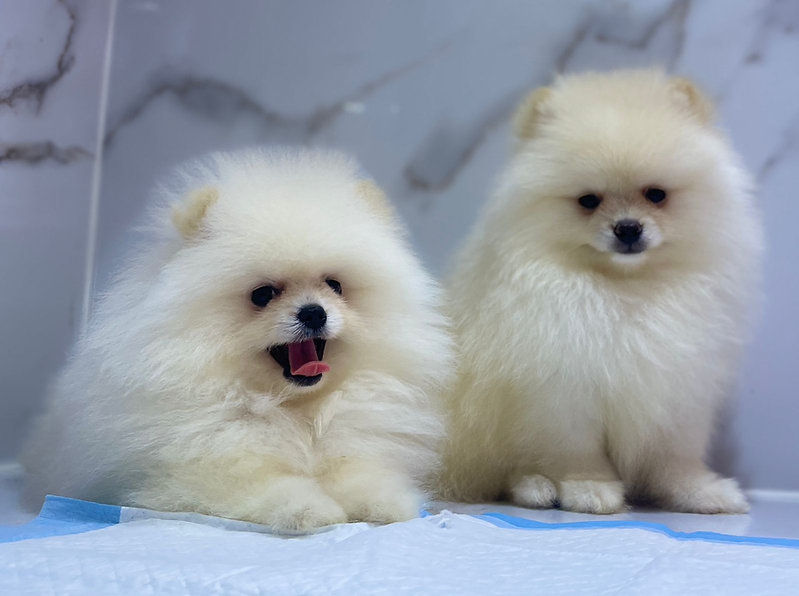"A Comprehensive Guide to Bringing Home and Caring for French Bulldogs"
- Petholicks

- Feb 12, 2024
- 7 min read
Introduction
Welcome to our in-depth guide to raising a French Bulldog at home. French Bulldogs are lovely and loving pets. We will talk about the value of appropriate puppy socialization, puppy proofing, and veterinary care, which includes worming, immunizations, and spaying and neutering. You'll discover how to provide a caring environment where your French Bulldog can flourish with advice from reliable sources like Petholicks Pet Shop and Supervet Pet Clinic Dubai.

Average lifespan
10-13 years
History Of French Bulldogs
The tiny Bulldogs that Nottingham lace workers carried to France in the 1800s are most likely the ancestors of the French Bulldog. Many breeds of dogs were created as a result of the introduction of these old Molossian canines to different places by Phoenician traders. When bull baiting was outlawed in Britain in 1835, Bulldogs and terriers were crossed, producing smaller Bulldogs. The current French Bulldog was created by further crossing these with Pugs. They became well-liked in France, particularly among lace workers, and in 1893 were brought back to England. A Bulldog Club was founded despite early opposition, and the breed was officially recognized by the Kennel Club in 1903 under the new name French Bulldog. French Bulldogs are the most popular breed nowadays because of their endearing beauty and loving temperament.
Height: Males 30 cm Females 30 cm
Average Weight: Males 12.5 kg Females 11 kg
Appearance of French Bulldogs
French Bulldogs have a square skull, a wide mouth, and characteristic "bat ears." They are small, robust dogs. They have well-rounded bodies, thick necks, and longer rear legs than forelegs. The coat is fine and short, with the predominant color being brindle. It is also available in fawn and pied. While they are not within the breed standard, other colors like a fawn or brindle and white are nonetheless quite popular. Soft and prone to creases and wrinkles, the skin is particularly noticeable around the head and shoulders. Kennel Club guidelines state that certain "rare" colors, such as merle blue/lilac and black and tan, are undesired; nonetheless, they can still be registered with a notation of "Colour Not Recognised." Breed clubs for French Bulldogs do not accept any other colors or patterns.
Temperament Of French Bulldogs
Loveable friends, French Bulldogs are well known for their clownish antics. Although they have lower work IQ scores, they can be patiently trained. They must exercise every day to avoid gaining weight and developing health problems. They are happy in their home setting as first-time pets, developing close relationships with their owners and showing signs of separation anxiety when left alone. Although they don't talk too much, they might bark if they don't get enough attention. Frenchies have poor swimming abilities and a dislike of the water. Because they are gregarious, they don't make the finest watchdogs, although they do notify owners of guests. They continue to be playful and adaptive, making them good for homes or apartments with appropriate exercise. In conclusion, French Bulldogs are devoted, energetic, and versatile pets, but they also need care and training to be happy and healthy.
Intelligence
Although French Bulldogs are eager to please and train with regular care, they can sometimes demonstrate stubbornness. Toilet training may take longer, but early intervention is crucial. They can be gregarious and clownish, which makes training difficult but worthwhile if you have patience. Early establishment of ground rules is recommended, with owners teaching cues such as "Come," "Sit," "Stay," "Quiet," "Leave it," and "Down." It's important to set limits and expectations for behavior early on, even with adorable kids. Because of their natural ability to enchant their owners, French Bulldogs require special attention during training. Overall, French Bulldogs may be trained to obey basic commands—which emphasize the need for early training and creating boundaries—if they are given enough time and patience.
Health Considerations
When given the right care and a diet appropriate for their age and health requirements, French Bulldogs can live an average of 10 to 14 years. They are, nevertheless, more vulnerable to some congenital and inherited conditions such as degenerative myelopathy, hemivertebrae, and cleft palate. In addition, hip dysplasia, back issues, cherry eye, and brachycephalic obstructive airway syndrome are major health concerns for this breed.
Owners of French Bulldogs need to keep a close eye on their health and seek veterinarian attention when needed. To reduce the dangers connected with these health problems and give these cherished companions a longer and better life, regular checkups, genetic testing, and cautious breeding procedures can be used.
Because of the size of their heads compared to their bodies, around 80% of French Bulldog puppies need to have a cesarean section during delivery. To protect the mother and her puppies, deliveries must be supervised by qualified veterinarians. Prioritizing veterinary attention from specialists in French Bulldog delivery methods can help owners reduce any possible risks related to giving birth.
Spaying and neutering
Many vets, like those at Supervet Pet Clinic Dubai, recommend delaying spaying and neutering dogs until they are a little older. With this method, canines can reach adulthood before receiving the operations. Generally, females should be spayed at 9 months old and males should be neutered at 6 months. Veterinarians may advise spaying and neutering at six months of age, but never before unless there are urgent medical concerns. Supervet Pet Clinic Dubai puts pets' health and well-being first. To ensure the long-term health and happiness of each dog, the clinic offers individualized spaying and neutering plans that are based on the age, health, and needs of each dog.
Vaccination
Before being sold, Frenchie pups normally receive their first vaccines; however, their new owners must make sure their pet has their subsequent immunizations on schedule. Puppies are typically vaccinated between 10 to 12 weeks of age, with full protection occurring two weeks following the second immunization. Although the usefulness of booster doses has been questioned, it is advised to speak with a veterinarian to find out if yearly vaccines are required. This guidance is consistent with the strategy used by Supervet vaccination services, which emphasizes customized vaccination schedules made to meet the unique requirements of every dog to guarantee their best health and immunity to illnesses.
Grooming and Care
Given their propensity for skin problems, French Bulldogs require frequent exercise and grooming to stay healthy. A healthy diet is also essential for them throughout their life. It's crucial to provide your French Bulldog puppy company while they're getting used to their new surroundings. Establishing a peaceful space for naps and initiating their early education, encompassing basic hygiene and acclimatization to wearing a collar, are crucial measures. Setting limits and ground rules will help to avoid behavioral issues. Wormed on a scheduled basis, puppies should be wormed at 6, 8, 10, and 12 months of age, with the breeder providing the necessary paperwork. The well-being and adjustment of French Bulldog puppies in their new homes are guaranteed by this all-inclusive treatment.
French Bulldogs require frequent brushing, with specific attention to their deep tail pockets to prevent infections. Despite having a short, simple coat, they shed more in the spring and autumn, therefore combing them more frequently is necessary. It's crucial to wipe their creases and folds with a moist cloth to stop the formation of bacteria. Every four to eight weeks, ears, nails, and glands should be examined and cleaned. To avoid infections, the folds surrounding the eyes should be wiped every day. It is advised to examine your ears every month and to take baths every six to eight weeks with hypoallergenic shampoo. Their pads are kept healthy with routine paw inspections. A shedding blade, slicker brush, 2-in-1 comb, and liquid detangler are necessary for efficient coat and hygiene upkeep on French Bulldogs.
Exercise and Maintenance
Because they are brachycephalic dogs, Frenchies should not be overexercised in extremely hot weather. If they do, they may quickly become overheated and develop hypothermia, which is a dangerous condition that should never be taken lightly. Because they are active and vivacious tiny dogs, they require at least an hour of exercise per day to stay in good health and prevent them from gaining too much weight. In addition to benefiting from and enjoying several interactive games throughout the day in between being taken for walks, kids perform better when given multiple shorter walks as opposed to fewer lengthy excursions.
Bringing Home a French Bulldog from Petholicks Pet Shop
Acquiring a French Bulldog from Petholicks Pet Store marks a thrilling adventure into the world of pet ownership. Reputable pet care company Petholicks makes sure your new furry family member settles in easily. Provide stimulating toys, a comfortable sleeping space, and premium dog food to your French Bulldog in preparation for their new home. Because of their endearing beauty and loving disposition, French Bulldogs are fantastic complements to any family. To guarantee a joyful and healthy start in their new surroundings, every French Bulldog at Petholicks receives vaccinations and goes through a thorough health assessment. To create a solid alliance based on trust, spend time getting to know your French Bulldog. French Bulldog general care, diet, and grooming advice are available from Petholicks Pet Shop.
Conclusion
Bringing home a French Bulldog from Petholicks Pet Shop guarantees a seamless transition with thorough immunizations and health assessments. For a joyful and healthy start, outfit your new furry family member with stimulating toys, comfortable sleeping quarters, and high-quality dog food. For advice on basic care, feeding, and grooming, rely on Petholicks' experience to help you create a happy, lasting relationship with your French Bulldog.
FAQS
What are the common health issues in French Bulldogs?
French Bulldogs are prone to several health issues, including brachycephalic syndrome, hip dysplasia, and skin allergies.
Are French Bulldogs good with children and other pets?
French Bulldogs are known for their affectionate and friendly nature, making them great companions for families with children. They typically get along well with other pets, although early socialization is important to ensure positive interactions.
Do French Bulldogs require a lot of exercise?
While French Bulldogs enjoy short walks and play sessions, they don't require as much exercise as some other breeds due to their brachycephalic (short-nosed) structure.
What are the grooming needs of French Bulldogs?
French Bulldogs have short, smooth coats that are relatively low maintenance. Weekly brushing helps remove loose hair and reduce shedding. Additionally, regular nail trimming, ear cleaning, and dental care are essential parts of their grooming routine.
Are French Bulldogs easy to train?
French Bulldogs can be stubborn at times, but they are generally intelligent and eager to please. Consistency and patience are key when teaching obedience commands and house training.







Comments